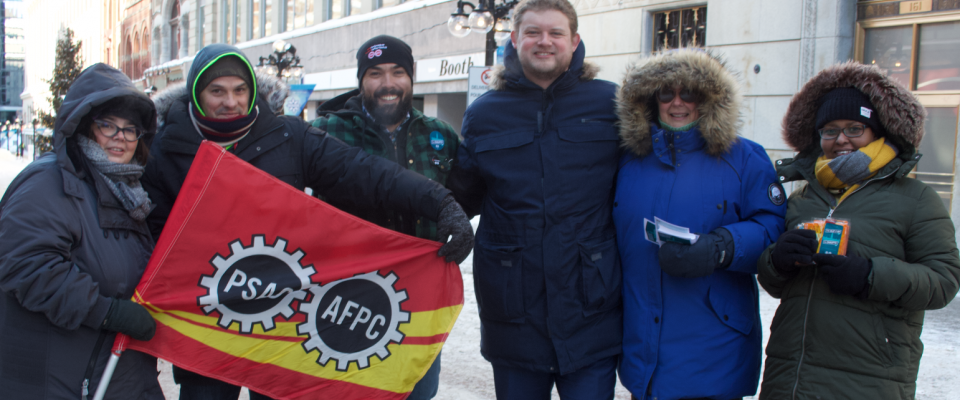The Public Service Alliance of Canada (PSAC) and other unions are today welcoming MPs back to work by turning up the heat against the Liberal government’s plan to privatize five heating and cooling plant operations in the National Capital Region. These plants presently provide service to about 100 buildings, including the Parliamentary Precinct, through a network of 14 kilometers of underground tunnels.
Since this campaign to stop the plants’ privatization was launched in October 2018, hundreds working and living in the NCR have taken the time to write their MPs asking for the process to be cancelled. Moreover, the government has elicited greater suspicion about the privatization scheme by:
-
not releasing a business case for the multibillion dollar project even though it promised to do so many months ago;
-
failing to address how companies seeking to maximize private profit, including ones with reputations for corruption, can be trusted to ensure the safe operation of the plants; and
-
making the misleading claim that it cannot attract qualified public sector workers to operate the plants in the future. (As PSAC has pointed out, current public sector workers at the plants earn considerably less than workers doing similar work in private industry; this is why the government finds it hard to find qualified workers.)
“I work in downtown Ottawa and I’m worried what this reckless privatization scheme will mean for my safety,”, said Alex Silas, a member of PSAC who works on Sparks Street. “Trusting the maintenance and operation of these plants to a profit-driven, private consortium is a bad idea.”
Unions once again call on the Trudeau government to immediately to stop the privatization process and meet with public service workers presently operating the plants to jointly develop a new plan for improving environmental performance, reducing energy costs, and enhancing overall safety. Only following this should the government issue a Request for Proposals to design and build new facilities, while keeping ongoing maintenance and operation in more cost-effective and accountable public hands.
 Member Login
Member Login



